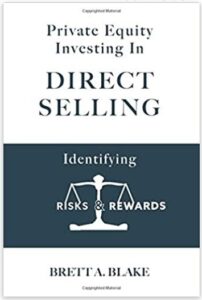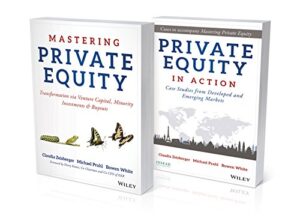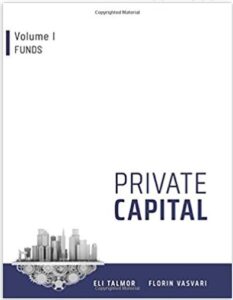
Whether you’re a new private markets investor or a seasoned one, there’s always something to learn. To help investors like yourself increase your knowledge and savviness in dealing with the private markets, we’ve curated a list of 10 powerful books every private markets investor should read. In your downtime, glean knowledge about the private markets from these books, then, return to the markets with an edge as a result.
1. Private Capital Investing: The Handbook of Private Debt and Private Equity by Roberto Ippolito

This book takes a step-by-step, comprehensive approach to private equity and private debt. It’s a practical manual on investing in two of the most common alternative asset classes— private equity and private debt, and provides unique insight on how principal investors analyse investment opportunities. This read stands out from other books in the market because it covers the various phases that principal investors follow when analysing a private investment opportunity.
2. Private Equity Investing in Direct Selling: Identifying Risks & Rewards by Brett A Blake

Private Equity Investing in Direct Selling is a book that will help you make wiser investment decisions and help you improve your returns. It will teach you things like understanding how to identify a pretender from a contender. If you’re a founder, it will teach you how to leverage the expertise and relationship of your investors. This is a great read for anyone who’s considering an investment, joining a company as a new board member or corporate executive, or an owner considering a transaction.
3. Mastering Private Equity Set by Claudia Zeisberger, Michael Prahl and Bowen White
This set is a combination of a guide to private equity together with a case book to go along with it. This provides readers the tools used by industry professionals as well as the knowledge of how to apply them to real-world investment scenarios.
a. Mastering Private Equity is for a professional audience. It provides a valuable and unique reference for investors, finance professionals, business owners and students looking to engage with private equity firms or invest in private equity funds. This book systematically breaks down private equity into core concepts such as deal sourcing, exit, LBOs, responsible investing, operational value creation and risk management. It also explains in detail the dynamics of venture capital, growth equity and buyout transactions.
b. Private Equity in Action contains a series of case studies written by INSEAD faculty and taught at the world’s leading business schools. These case studies are about the private equity investment world, and the contents of this book are an ideal complement to Mastering Private Equity. It guides readers along to ultimately apply the core concepts to their own investment targets and portfolio companies in real-life settings. The 19 cases used showcase the managerial challenges and risk-reward dynamics common to private equity investment.
4. Private Capital: Volume 1 – Funds by Prof Eli Talmor

Institutional investors and family offices are allocating capital around the world constantly. This allows other types of assets such as infrastructure, real estate and private credit to see expansion. This two-volume book provides a comprehensive overview of the main topics in private capital, and this volume hones in on fund-level aspects. These include: private capital as an asset class, fund structuring, types, performance measurement, fundraising, due diligence, accounting and reporting, governance, administration and tax considerations. It also looks at risk management, ESG as well as special classes of funds such as secondaries, credit, real estate, infrastructure and natural resources.
5. Inside Secrets to Angel Investing: Step-by-Step Strategies to Leverage Private Equity Investment for Passive Wealth Creation by Karen Rands

This book preaches that Angel Investing is more than just simply crowdfunding – it teaches that Angel Investing can create passive income, build generational wealth, and talks about how there has never been a better time to invest in private companies. This book provides a step-by-step guide to finding, evaluating and making angel investments in private companies before they go private or grow large enough to be acquired. This book is for the investor who wants to diversify their investment portfolio beyond real estate and stocks & bonds. Draw upon the inside secrets based on the author’s 15 years’ experience and conversations with hundreds of investors to help you learn and build confidence.
6. Private Equity Investing in Emerging Markets: Opportunities for Value Creation (Global Financial Markets) 2015th Edition by R. Leeds

This book draws upon the author’s 40 years of experience as a practitioner and academician working with private equity investors, entrepreneurs and policymakers in over 100 developing countries worldwide. It makes learning easier for readers by utilising anecdotes and case studies to illustrate and reinforce the key points for private equity investment in emerging economies.
7. International Private Equity by Eli Talmor and Florin Vasvari

This book provides an overview of the private equity industry and utilises major case studies from a vast range of business sectors from the collection of the London Business School’s Coller Institute of Private Equity to exemplify all stages of the deal process and to illustrate key topics like investing in emerging markets. The examples used in this book are drawn from Europe, the Middle East, Africa and America and cover all the main aspects of the private equity model including fund raising, fund structuring, fund performance measurement, private equity valuation, due diligence, modeling of leveraged buyout transactions and harvesting of private equity investments.
8. Private Equity as an Asset Class by Guy Fraser-Sampson

This book is aimed equally at investors, professionals and business school students alike. It’s a practical guide to mastering the intricacies of private equity, crafted by the author, who has more than twenty years of experience in the private equity industry. The key points in this book include a glossary of private equity terms, venture capital, buyout, growth capital, development capital, secondary investing, understanding private equity returns, analysing funds and returns, how to plan a fund investment programme and a detailed discussion of industry performance figures.
9. Lessons from Private Equity Any Company Can Use by Orit Gadiesh and Hugh Macarthur

Learn how private equity (PE) firms become powerhouses that snap up brand-name companies and assemble portfolios that make them global conglomerates to be reckoned with, with investor values that are maximised far more successfully than traditional public companies. The authors use the format of a memo to lay out the 5 disciplines that PE firms use to get their advantage. They are:
- Invest with a thesis using a specific, appropriate 3-5 year goal
- Create a blueprint for change—a road map for initiatives that will generate the most value for your company within that time frame
- Measure only what matters—such as cash, key market intelligence, and critical operating data
- Hire, motivate and retain hungry managers—people who think like owners
- Make equity sweat—by making cash scarce, and forcing managers to redeploy underperforming capital in productive directions
10. Private Equity Operational Due Diligence: Tools to Evaluate Liquidity, Valuation, and Documentation + Website: 731 by Jason A. Scharfman

This book not only covers the two industries that are competing for investments, but it also gives investors technical tools to analyse documentations, operations expenses and risks involved, links to laws and regulations references along with living case study examples. This read combines comparisons, techniques and case studies, making it an invaluable resource for investors, fund managers, service givers, operations and students.
In addition to these books, our insights in our CapBridge blog provide valuable information when it comes to topics surrounding the private markets as well. Give our articles a read, and if you have further queries, feel free to reach out to our team of investment professionals who will be glad to address any questions you may have about capital raising for your company or
investing in the private markets.


